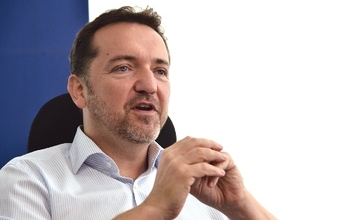
Sicard is quite happy for many things with regards to the response to Datsun. "Very pleased to hear what customers are saying about our products. Also, there has been a huge improvement on the after sales aspect as well. The challenging part is to establish a completely new brand in India. While the brand has been known in some other markets, it is not known in India," he states.
India being a very price sensitive market, reducing cost at the manufacturing level is a key to produce competitive vehicles. So what is Nissan doing on the manufacturing front to take care of this issue? "You are absolutely right. Well, it (price sensitivity) is a very good thing for the consumers but it is making our job as global OEMs extremely difficult," he says.
Then he points out that if you look at the profitability of the global OEMs in India, excluding the two major ones, all of them are having a hard time in terms of profitability. "We are fortunate because we have selected a good strategy, which was to have exports at the beginning. It is helping us not to be in a bad shape in terms of P&L. So I would say that we are in an acceptable situation today."
But, globally profitability is still difficult because transaction price is extremely in India. "It is extremely low because you have the main manufacturer (alluding to Maruti Suzuki) who has been here for decades. That has amortised its main investments. So all the new guys who are coming in need to adapt. Either they cannot adapt at the right price so they are having hard time to sell or they can adapt but they are making losses." And that is making this market extremely challenging, he says.
While Nissan is doing okay due to exports but Sicard agrees that it needs to make cars more competitive. "It means we have to work better on our costs." Sicard knows that the manufacturing cost or rather the assembly cost is not really a big cost. The bigger cost is coming from the components that are being sourced from suppliers.
"So we need to ensure that the parts that we are buying from India are as cost competitive as possible. So it's negotiation and it is also a bit of a juggad as it requires us to source the right parts to what we have adapted here. The international content needs to decrease gradually as it is more expensive due to the taxes. Currently, our local content is about 68 percent to 70 percent. It is quite good but we still need to improve it further. Then of course, the more you will produce the quicker the less your depreciation is going to cost you. So we are very much focussed on keeping our prices as competitive as possible. There is a huge team working at the plant right now focusing on making the necessary improvements."
Nissan's manufacturing is at the average industry capacity utilisation in India, which is about 60 percent to 65 percent. "It means that we can sell more cars in the domestic market. Our domestic to exports ratio at present is 50:50," Sicard shares.
(Continued on the next page)



























